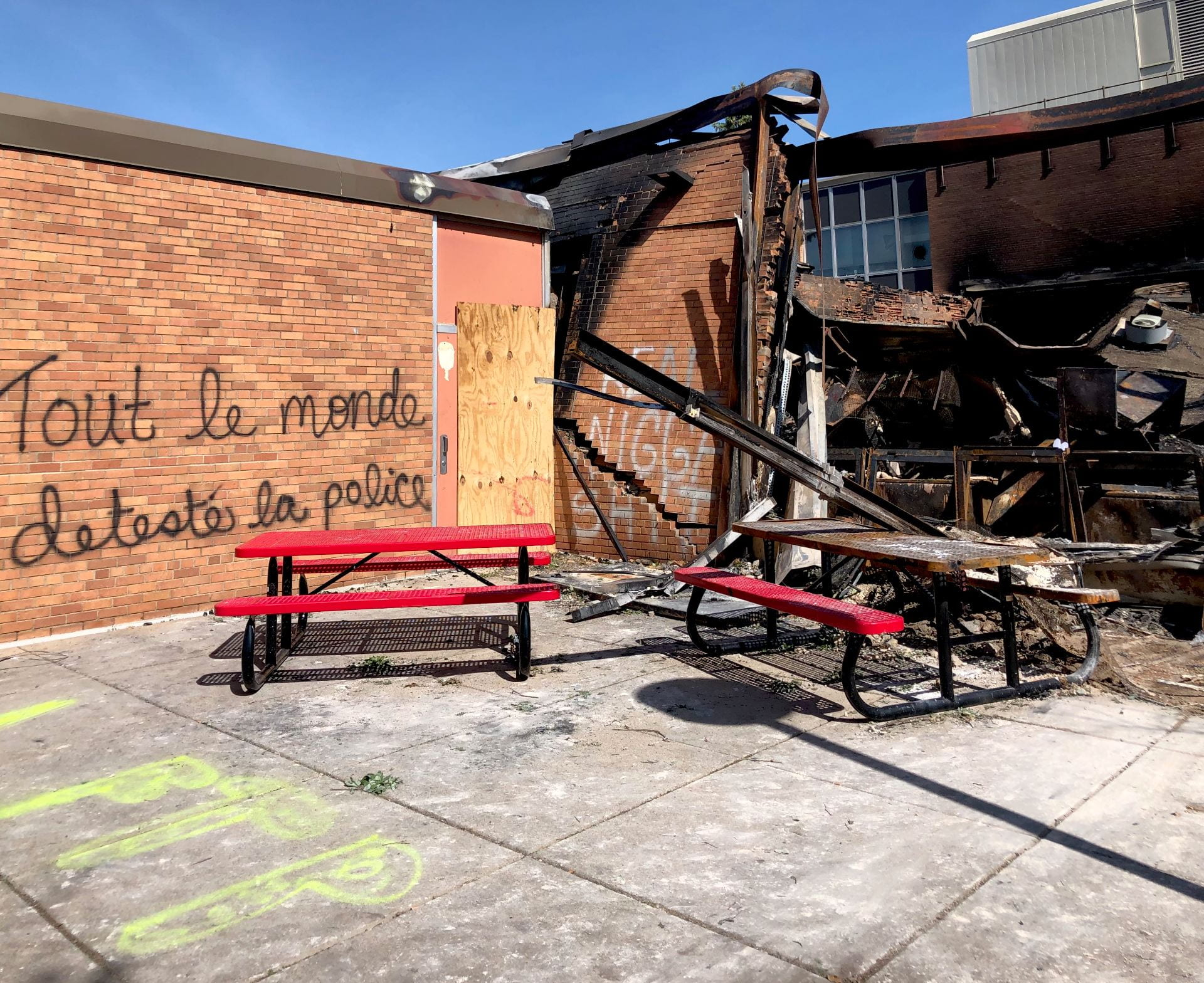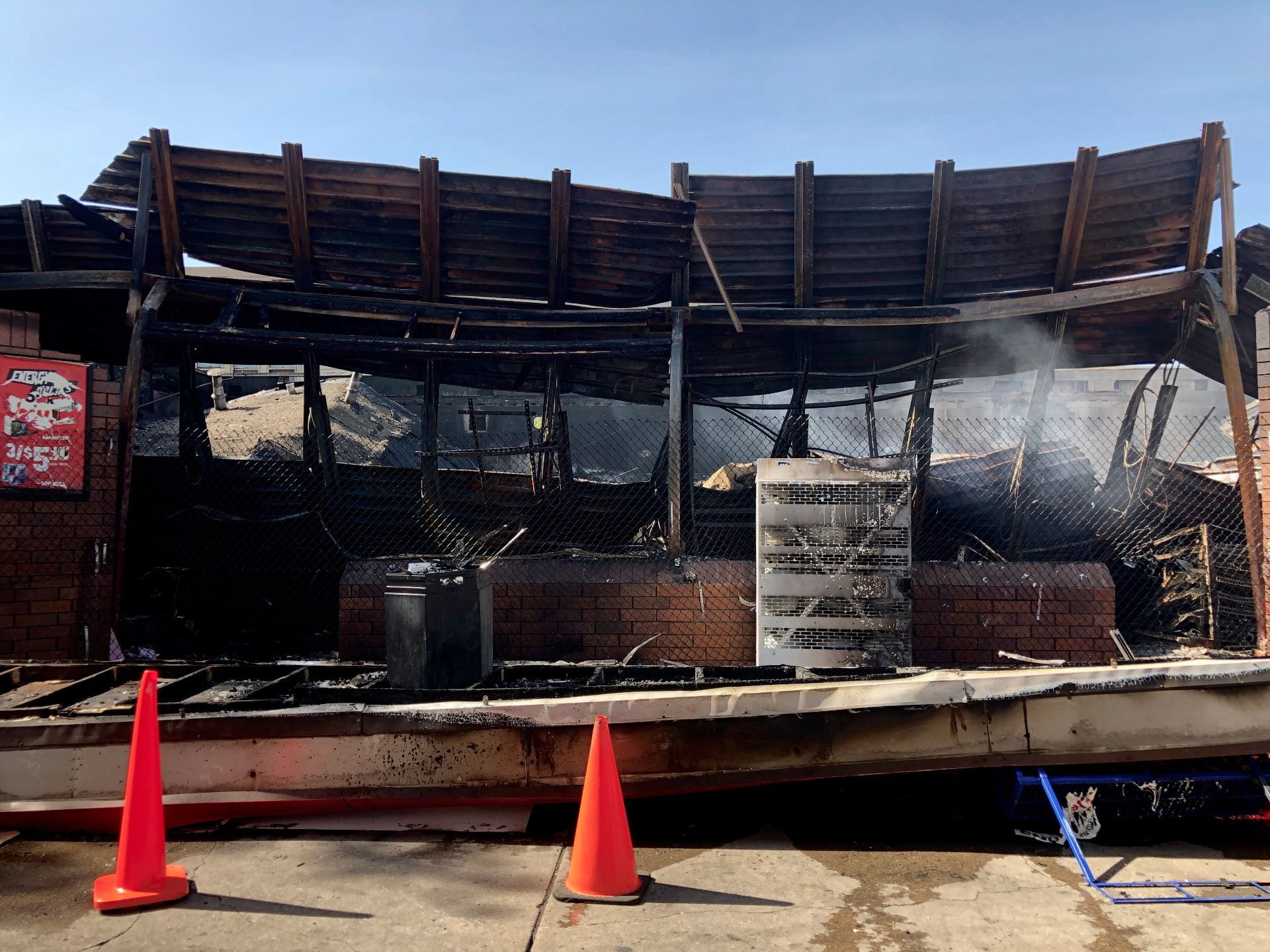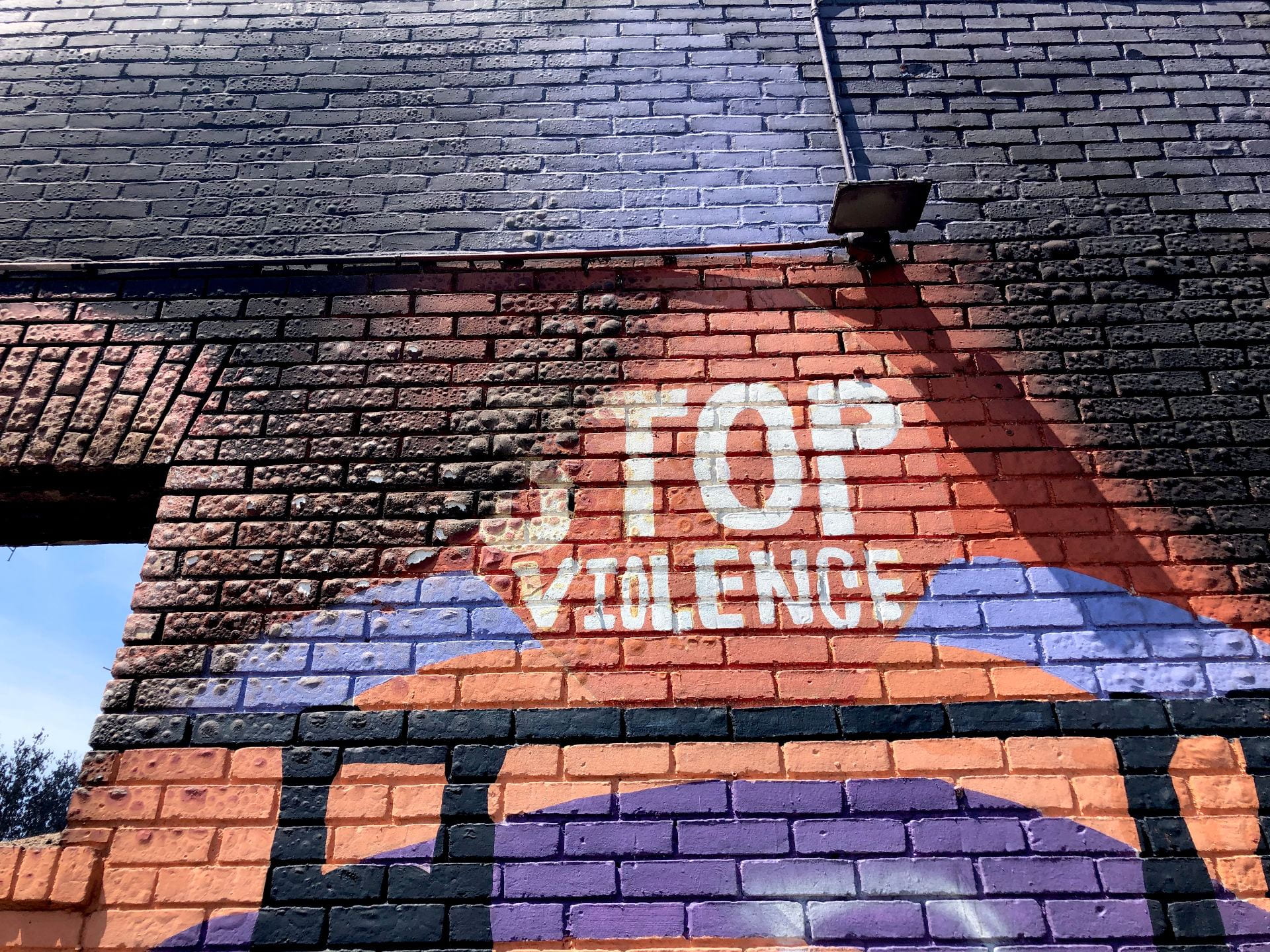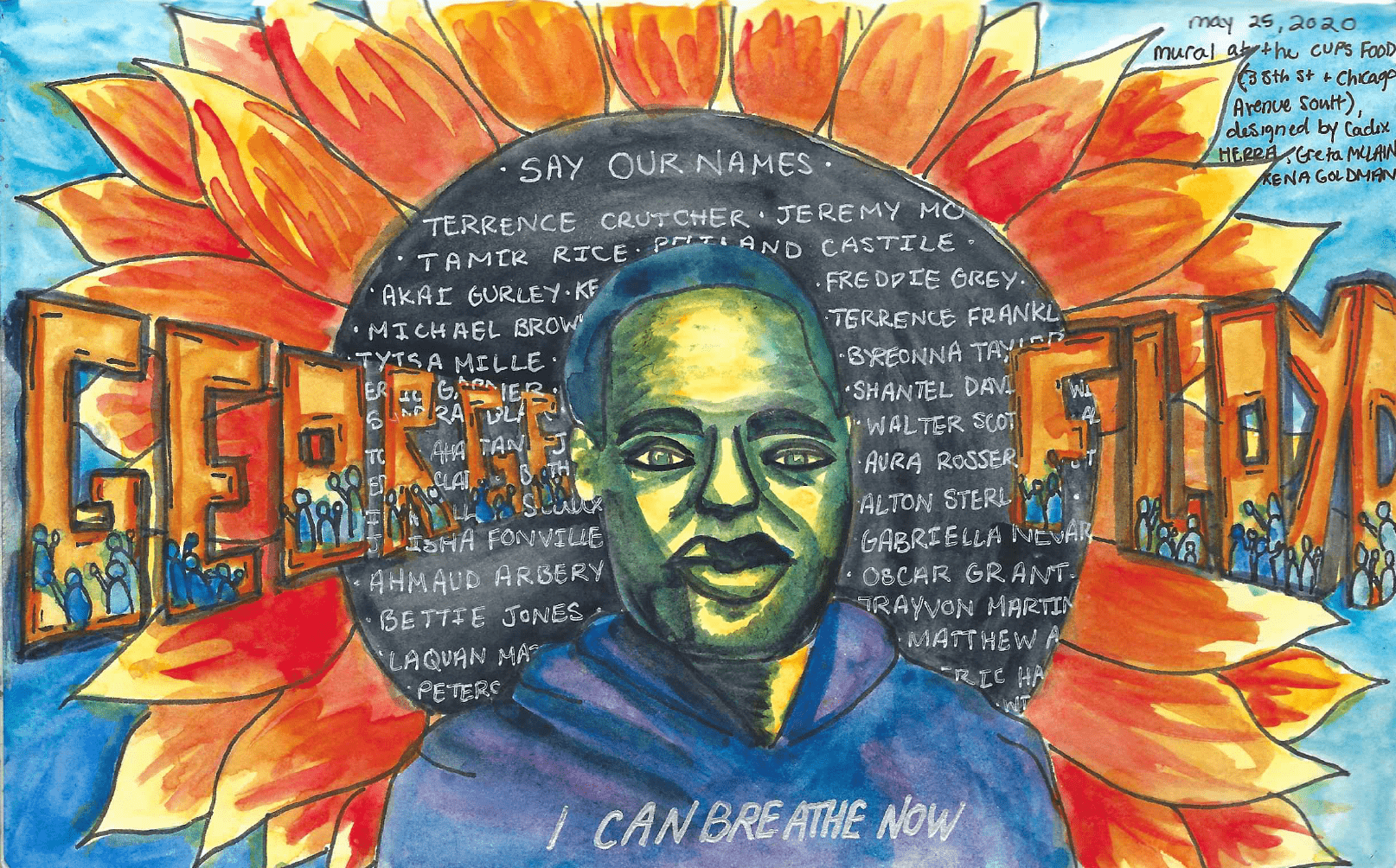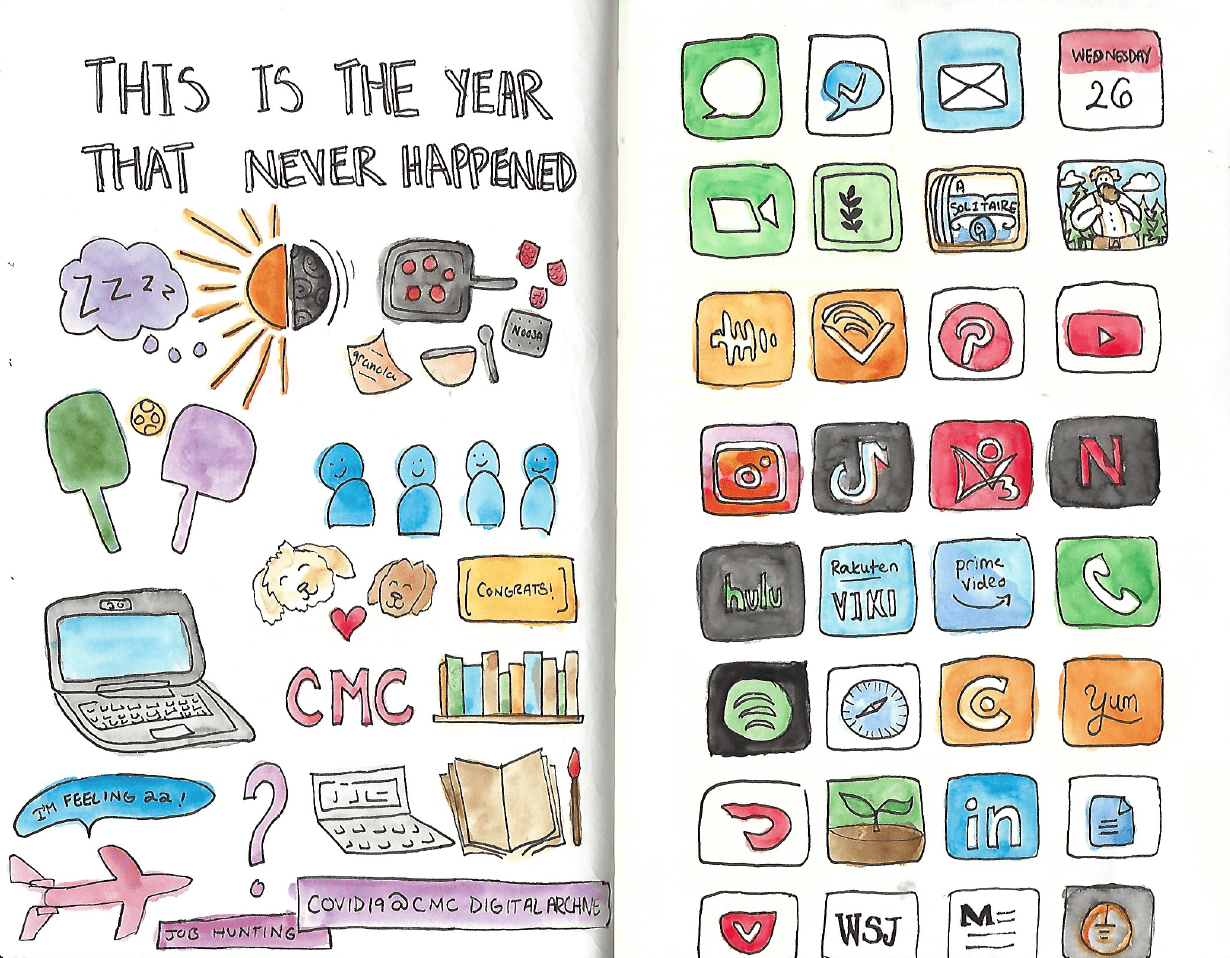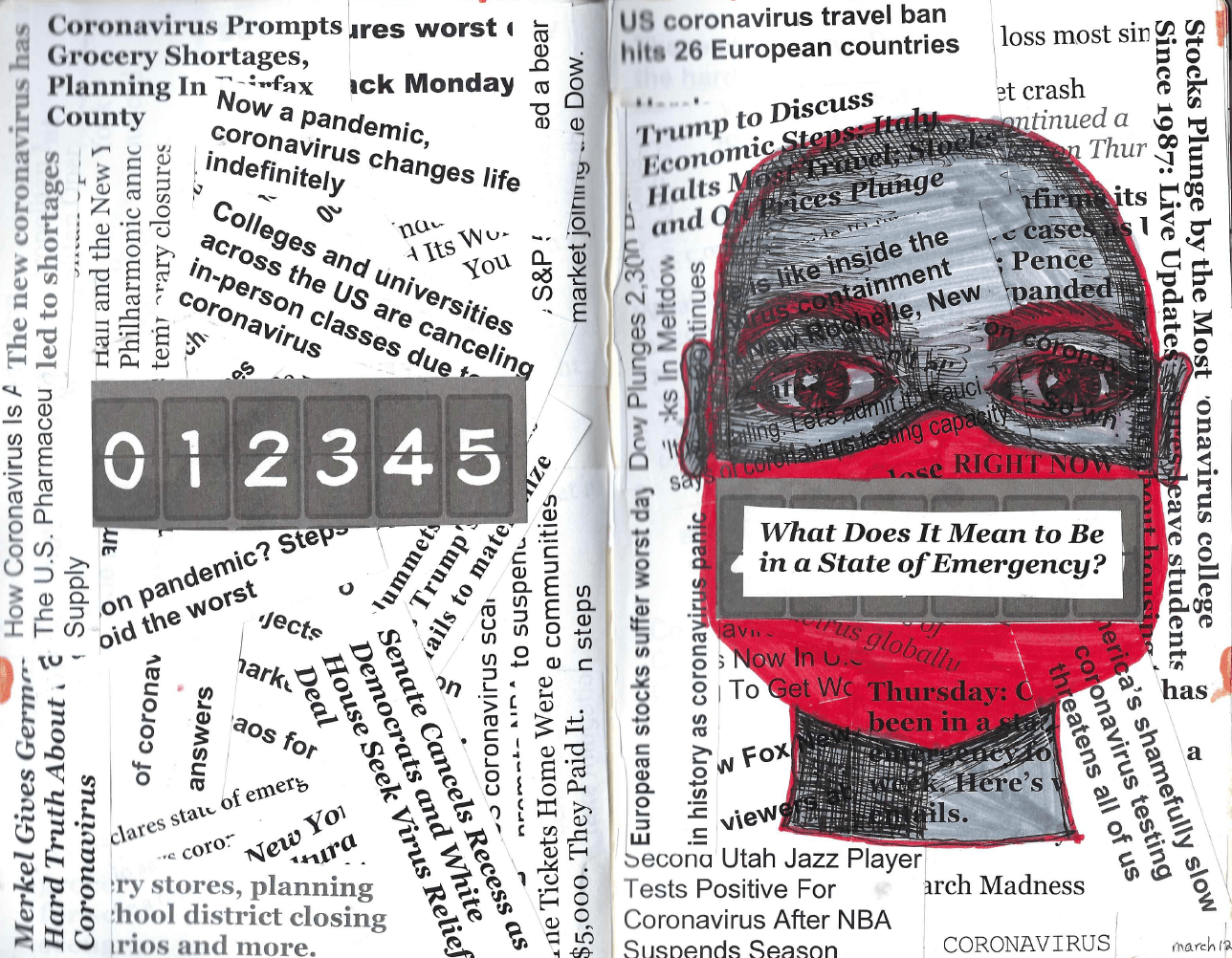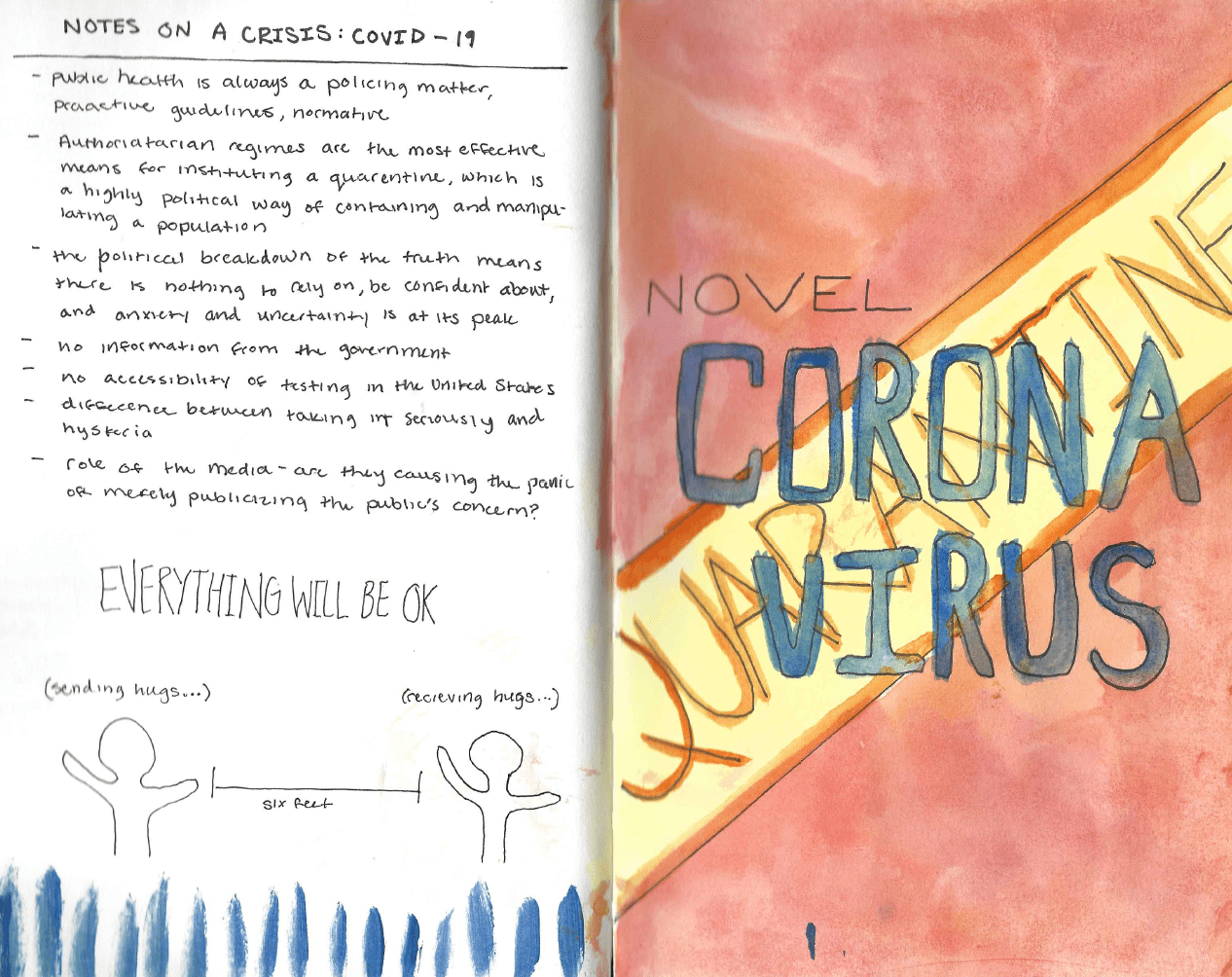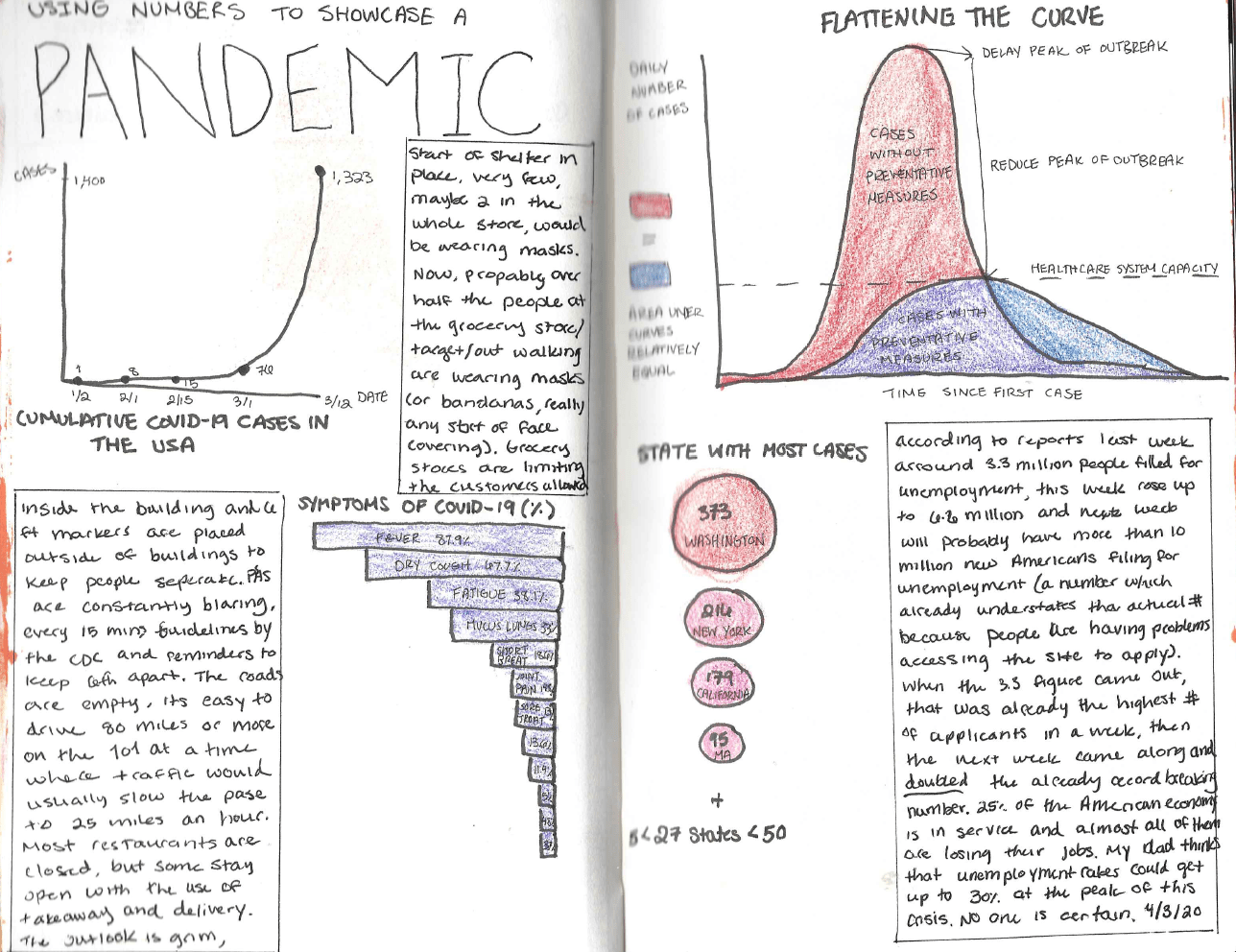Reflections
Essays and Digital Stories by Covid19@CMC Research Fellows
Some Thoughts on a Global Pandemic
A short animated film created by Lia Harel
Coming of Age while Stuck at Home
A short film created by Annabelle Duflock
In Conversation with Prof. Wenzel
A short film created by Tiffany Hu
A New Reality: Life during a Pandemic
By Annie Raines, September 23, 2020
As I packed my bags to leave CMC in March, I never expected to be so impacted by COVID-19. I had to pour my beloved betta fish into the Scripps pond before catching my flight, and I thought that would be the worst part. I could not have been more wrong. Despite spending a wonderful amount of time with my immediate family, 2020 brought a myriad of challenges to the forefront of my home life. I lost three family members to COVID-19 in the span of two months, and I will never be able to come to terms with the loss in a normal way.
As a CMC history major, I always felt excited to study the histories of others around the world. I never thought that I would be living through a history of my own, where I cannot turn the page of a book and see what happens next. I watched my brother’s virtual college graduation, did virtual interviews, spent hours on Zoom for class and social interaction, and found my only solace at Trader Joe’s. Yes, walking through the frozen food aisle became therapy.
Equipment-free exercise and socially distant gatherings were the only breaks my eyes got from the domineering glare of my computer screen. Through familial despair and social deprivation, COVID-19 had me scrambling for distraction. I searched for any book or television series that could take my mind off of a horrible reality. Over time, I was able to not only find solitude but to embrace and chase it. This is not an easy feat for someone who derives all energy from being around other people, but these are desperate times. Reader, I hope you find peace in knowing that you are not alone. Every COVID-19 experience is unique and valuable. You are making history and you have an important story to tell.

Every COVID-19 experience is unique and valuable. You are making history and you have an important story to tell.
White Lies: Protesting in a Pandemic
By Lia Harel, September 22, 2020
Most of us wouldn’t hesitate to talk about how Covid hijacked our lives, how it severely limited our options, how it controlled us for months on end. I certainly found many creative ways to complain about the restrictions of quarantine. However, I can’t really pity myself because I used Covid to my advantage. I used it as an excuse when I didn’t want to engage in social situations or lean in for hugs or share my food with someone. But these excuses were just little white lies.
I spent the majority of quarantine at home in Minnesota. I lived twenty-four minutes away from the intersection of Chicago Avenue and East 38th Street where George Floyd was murdered at the hands and knees of Minneapolis police. During the social upheaval of the Black Lives Matter protests, I also told a white lie, for I used Covid as an excuse to sit on my couch at home rather than take a stand.
Yet, this excuse was different. My excuse was the white lie. The white lie was telling myself that because I’m a white person, the issue of racial injustice and police brutality against the Black community is not my concern. But so much of this issue is white.
White like the road line George Floyd’s face was crushed against.
White like the smoke from the tear gas.
White like the milk protestors poured over their eyes.
White like the cell phone flashlights capturing everything on video.
White like the center of the flames of the fires.
White like the ashes of what is left behind.
White like me.
I didn’t know what to do. Yes, social media, petitions, and donations were tools in the movement to bring about social and political change. But digital mobilization is not yet powerful enough to act all on its own. There’s still power in the physical presence of hundreds of bodies standing together, of voices chanting for justice, of fists raised with rage. The fight for justice can’t yet be won from the couch. But I was scared. I was uncomfortable. And for a long time, Covid gave me an excuse to stay seated.
I finally did end up going to help clean up glass and garbage on Lake Street, the epicenter of the violent protests. I also went to a few marches at the state capital. It felt wrong to stay at home, but it also felt wrong to go out to these vulnerable spaces in the middle of a pandemic in which I could unknowingly infect others. I still don’t know if there was a right thing to do.
I don’t know how much documentation there will be of white lies and the white lie. These are the kinds of things people will hesitate to mention. It’s uncomfortable. It’s admitting fault. It’s being honest. And if I’ve learned anything in my nineteen years it’s that history is not usually honest.
The fight for justice can’t yet be won from the couch. But I was scared. I was uncomfortable.
“Dear Diary:” Why Journaling Matters in Moments of Crisis
By Kylie Harrison, October 1, 2020
I have been trying to keep a journal since I was twelve. No matter how many times I tried, the notebook would always end up abandoned on my bookshelf with fifteen others just like it. It wasn’t until my junior year of college that I actually understood the beauty in keeping a journal. During the fall semester, I took a history class with Professor Julia Liss at Scripps. For our final project, we were given free range to pick a topic, relying on the Special Collections archive at Honnold Mudd for our research. I decided to focus on how average Americans, particularly youth, described the social conflict that characterized the 1920s. I read articles from Pomona’s Student Life, but it was a box of diaries that had been donated a week before I started researching that really caught my eye. These beautiful journals, adorned with pressed flowers, magazine cut-outs, and delicate cursive writing, contained the memories of a young girl, Catherine Cooper, growing up in America a hundred years ago. The fact that these diaries survived a hundred years, a cross country trip, and family members who did not really want boxes of old journals, is amazing. I began to respect the idea of leaving a physical gift for the next generation, a way for future historians to understand the emotions and experiences of our time. I also realized that a journal doesn’t have to be perfect to be valuable. Catherine’s diaries were a mismatch of magazine cut outs, doodles, scratched out words, and pages with only a single sentence on them.
My journal has never been as important to me as it is now. When I heard the news that Covid19 had been declared a pandemic and schools would be closing, I turned to my journal to express my frustration and sadness about my senior year of college being cut short. I cut out headlines from March 12, 2020, when the markets tumbled, chaos reigned, students scrambled to get home, and borders closed (trapping people on one side or the other). I have notes from a class discussion, analyzing why public health crisis are so politicized. I have drawings of graphs that were published by the CDC: listing symptoms, death rates, number of global cases, and the curve of hospitalizations. I have drawings and journal entries from May and June, when George Floyd was murdered, and BLM protests wracked the nation. I started drawing more, needing the outlet to express myself. There are chaotic drawings with harsh black lines, bright watercolor homages to George Floyd and Ruth Bader Ginsberg, and newspaper collages.
As I delved more into my art, I became closer with my grandmother. Since March, she has been isolated because of the Covid19 restrictions in senior housing facilities, often spending entire days alone. Over the course of the pandemic, as the months dragged on, I decided to start calling her more often to check in. My grandmother, Marge Finlay, is an artist and when we began discussing art, we were able to develop a deeper and more profound relationship. Recently, I interviewed her and asked her what made her fall in love with painting. She said that, “art is a way of expressing emotions about the things that happen in your life… Even if you never turn out beautiful paintings… you have that outlet to get rid of emotions,” you have a way of capturing “the joy of being where you are, and you get it expressed in that page.” When she looks back at her paintings, she can remember how she felt and who she was with, more vividly that if she was looking at a photograph. As I have learned to truly value the catharsis of art journaling during these months of shutdown, I hope that you will considered tackling your own blank page.
Art is a way of expressing emotions about the things that happen in your life… Even if you never turn out beautiful paintings… you have that outlet to get rid of emotions.

